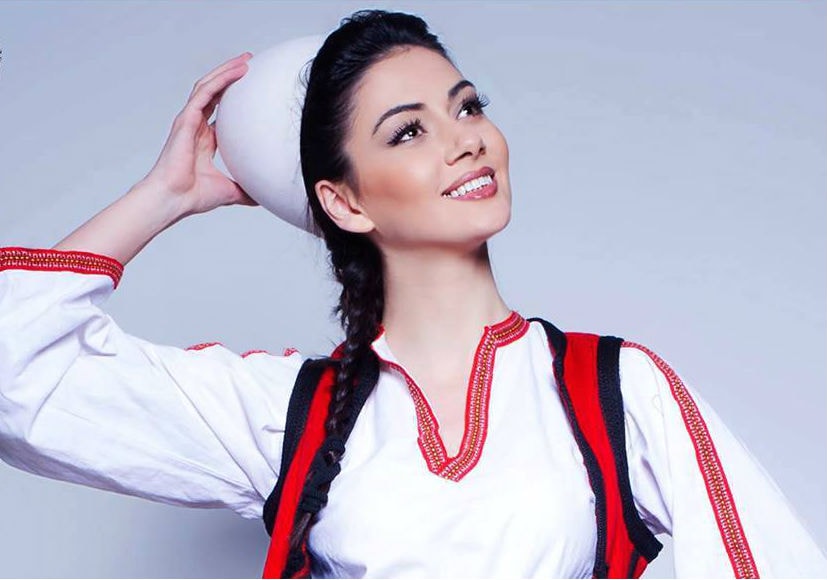Slavic peoples
Centuries-outdated communities speaking Albanian dialects can be discovered scattered in Croatia (the Arbanasi), Greece (the Arvanites and a few communities in Epirus, Western Macedonia and Western Thrace), Italy (the Arbëreshë) in addition to in Romania, Turkey, and Ukraine. Two sorts of the Tosk dialect, Arvanitika in Greece and Arbëresh in southern Italy, preserved archaic components of the language.
Article History
The decrees formulated by the Synod were printed by the College of Propaganda in 1705, and renewed in 1803. In 1872, Pius IX convoked a second nationwide synod at Shkodër, for the revival of the popular and ecclesiastical life. Owing to Austrian curiosity in Albania, the institution of the Catholic bishops of Albania was obtained via a civil decree released by the Vilajet of Berat.

The Arbëreshë and Arvanitika languages characterize varieties of the Albanian language spoken by the Arbëreshës and Arvanites in Southern Italy and Southern Greece respectively. They retain parts of medieval Albanian vocabulary and pronunciation which might be now not utilized in fashionable Albanian language nonetheless both varieties are categorized as endangered languages in the UNESCO Red Book of Endangered Languages. One inhabitants, the Arvanites, settled Southern Greece between the 13th and 16th centuries assimilating into and now self-identifying as Greeks.[f] Another inhabitants who emerged as the Arbëreshë settled Sicily and Southern Italy.

In 1995, Taylor, Ringe and Warnow, utilizing quantitative linguistic methods, found that Albanian appears to comprise a “subgroup with Germanic”. However, they argued that this reality is hardly vital, as Albanian has misplaced a lot of its authentic vocabulary and morphology, and so this “apparently shut connection to Germanic rests on solely a few lexical cognates – hardly any proof in any respect”. The Albanian language has two distinct dialects, Tosk which is spoken in the south, and Gheg spoken within the north.
Irreligion
The first kings of Albania had been certainly the representatives of the native tribal the Aristocracy, to which attest their non-Armenian and non-Iranian names (Oroezes, Cosis and Zober in Greek sources). A column capital of a seventh-century Christian church with an inscription in Caucasian Albanian, present in Mingachevir. The column capital is now kept on display at Azerbaijan State Museum of History.
During the trendy period, the monarchy and communism in Albania as well as the socialism in Kosovo, traditionally a part of Yugoslavia, followed a scientific secularisation of its folks. This coverage was mainly utilized inside the borders of each territories and produced a secular majority of its population.
Albanian neighborhood of Russia
The language is spoken by approximately 6 million people within the Balkans, primarily in Albania, Kosovo, North Macedonia, Serbia, Montenegro and Greece. However, because of previous communities in Italy and the massive Albanian diaspora, the worldwide total of audio system is far higher than in Southern Europe and numbers roughly 7.5 million. First attested in the 15th century, it is the last Indo-European department to appear in written information. This is one of the reasons why its nonetheless-unknown origin has long been a matter of dispute amongst linguists and historians. Albanian is considered to be the descendant of one of the Paleo-Balkan languages of antiquity.
Chronology of relations with the European Union
Multiple artefacts from the Iron and Bronze Ages near tumulus burials have been unearthed in central and southern Albania, which has related affinity with the sites in southwestern Macedonia and Lefkada. Archaeologists have come to the conclusion that these areas were inhabited from the center of the third millennium BC by Indo-European individuals who spoke a Proto-Greek language.
Tirana was also involved about the compelled removing of Muslim Albanians in the course of the population change with Greece who had arrived to Turkey and were living in troublesome financial circumstances to be permitted migration to Albania if they so wished. Granted that proper for Albanians from Chameria, the arrangement also coated Albanians arriving from Yugoslavia to Turkey the option of migrating to Albania. For example, some Albanians that fled from Debar to Turkey migrated to Albania and its capital metropolis albanian brides Tiranë where they turned an necessary section of the urban inhabitants through the 1920s. Turkish officers similar to Nur expressed their displeasure that Albanians had arrived as Turks contravening the change agreement and that they had been resettled in areas similar to Kartal, Pendik and Erenköy, west of İzmit considered to be high quality lands and in Ankara.
After the demise of Enver Hoxha in 1985, his successor, Ramiz Alia, adopted a relatively tolerant stance toward spiritual apply, referring to it as “a private and household matter.” Émigré clergymen have been permitted to reenter the nation in 1988 and officiate at religious services. Mother Teresa, an ethnic Albanian, visited Tirana in 1989, where she was obtained by the foreign minister and by Hoxha’s widow.
Religious observances, customs and culture
The overwhelming majority of Kosovo’s inhabitants is ethnically Albanian with almost 1.7 million individuals. Their presence in addition to in the adjacent areas of Toplica and Morava is recorded because the Middle Ages. As the Serbs expelled many Albanians from the broader Toplica and Morava areas in Southern Serbia, which the 1878 Congress of Berlin had given to the Principality of Serbia, many of them settled in Kosovo. Kosovo declared independence from Serbia on 17 February 2008, after years of strained relations between the Serb and predominantly Albanian population of Kosovo. It has been officially recognised by Australia, Canada, the United States and main European Union international locations, whereas Serbia and its ally Russia refuse to recognise Kosovo’s sovereignty.
According to the 2011 population census, 2,765,610 or 98.767% of the population declared Albanian as their mother tongue (mother tongue is outlined as the first or primary language spoken at residence during childhood). With the political and financial changings in 1993, human resources in sciences and technology have drastically decreased. As of assorted reviews, during 1991 to 2005 roughly 50% of the professors and scientists of the universities and science establishments within the nation have left Albania. In 2009, the government permitted the National Strategy for Science, Technology and Innovation in Albania masking the interval 2009 to 2015. It goals to triple public spending on research and development to zero.6% of GDP and augment the share of GDE from foreign sources, together with the framework programmes for research of the European Union, to the point the place it covers 40% of research spending, among others.